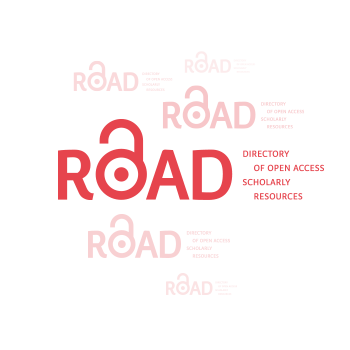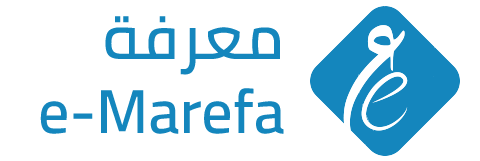Proposed Standards for Digital Literacy and Awareness Development Based on the Principles of a Culture of Responsibility
DOI:
https://doi.org/10.59994/pau.2025.SI.1Keywords:
Standards, Digital Awareness, Culture of ResponsibilityAbstract
This study aimed to propose standards for developing digital awareness and digital literacy, empowering staff with the digital skills necessary to perform tasks accurately, with quality, and a competitive advantage, and achieving desired goals in the shortest possible time and with the least effort. This is achieved by leveraging digital technology, its applications, and software, based on the principles of a culture of responsibility. This was achieved through a comprehensive analysis of educational literature, research, and previous studies during the 2024/2025 academic year. The study focused on providing clear practical steps to enhance the digital competence, skills, and capabilities of leaders to ensure continued excellence and achieve comprehensive quality in light of rapid technological developments. What distinguishes this study from others is its reliance on an analytical approach as a basis for extrapolating and analyzing the results of previous studies to understand the challenges and threats to digital literacy. This is to build future standards for developing digital awareness and empowering individuals with the digital skills, capabilities, and expertise necessary to eradicate digital literacy. This is achieved by promoting a culture of responsibility as a cornerstone in developing sound digital awareness, enabling individuals to engage with technology and the internet in a safe, ethical, and effective manner. This culture includes a set of basic principles that form a framework for good digital citizenship. These include: Principle 1: Respect and Positive Interaction; Principle 2: Protecting Privacy and Digital Security; Principle 3: Critical Thinking and Information Literacy; Principle 4: Understanding Digital Rights and Responsibilities; Principle 5: Digital Health and Balance; Principle 6: Digital Law and Ethics; Principle 7: Digital Access and Inclusion. The study recommends the development of educational content that promotes the concepts of safe and responsible use of digital technologies, with a focus on the ethics of handling personal information and data.
Downloads
References
المراجع العربية:
العساف، أحمد (2020). الأمية الرقمية والوعي الأخلاقي: دور التفكير النقدي. مجلة التعليم الرقمي، 12(4)، 45-61.
النعيمي، عبد الله (2021). المسؤولية الرقمية وأثرها على السلوكيات عبر الإنترنت. مجلة دراسات وسائل التواصل الاجتماعي، 16(2)، 92-105.
السيد، فاطمة (2022). الفجوات في التعليم الرقمي: المهارات مقابل القيم. مجلة تكنولوجيا التعليم، 30(3)، 120-134.
منظمة الأمم المتحدة للتربية والعلم والثقافة (اليونسكو). (2023). دمج القيم في المناهج التعليمية الرقمية: منظور عالمي. منظمة الأمم المتحدة للتربية والعلم والثقافة.
المراجع العربية بنظام الرومنة:
Al-Asaf, Ahmad. (2020). Al-‘umiyya al-raqamiyya wal-wa‘y al-akhlaqi: Dawr al-tafkir al-naqdī. Majallat al-Taleem al-Raqamī, 12(4), 45-61.
Al-Nu‘aymī, ‘Abd Allah. (2021). Al-mas’ūliyyah al-raqamiyyah wa atharuha ‘ala al-sulūkiyyāt ‘abr al-Internet. Majallat Dirasat Wasā’il al-Tawāsul al-Ijtimā‘ī, 16(2), 92-105.
Al-Sayyid, Fāṭimah. (2022). Al-fajawāt fī al-ta‘ālīm al-raqamī: Al-mahārāt muqābil al-qiyam. Majallat Takanūlūjiyā al-Taleem, 30(3), 120-134.
Al-‘Unescū (UNESCO). (2023). Damaj al-qiyam fī al-manāhij al-taleemīyah al-raqamīyah: Manẓūr ‘ālamī. Manẓūmat al-‘Unescū.
المراجع الأجنبية:
Abdulle, M. A., Kulmie, D. A., Awale, A. A., Ibrahim, M. S., & Adan, A. T. (2025). Female University Students and Fintech Literacy: Evidence from Somalia. International Journal of Economics and Financial Issues, 15(2), 226.
Al-Ababneh, H. A., Alkhudierat, N. A., Almubaydeen, T. H., Zawaideh, F. H., Alhosban, A., & Mugableh, M. I. (2025). Promoting green technologies through digital marketing platforms and social media. In E3S Web of Conferences (Vol. 614, p. 01015). EDP Sciences.
Alshaketheep, K., Mansour, A., Deek, A., Zraqat, O., Asfour, B., & Deeb, A. (2024). Innovative digital marketing for promoting SDG 2030 knowledge in Jordanian universities in the Middle East. Discover Sustainability, 5(1), 219.
Buchan, M. C., Bhawra, J., & Katapally, T. R. (2024). Navigating the digital world: development of an evidence-based digital literacy program and assessment tool for youth. Smart Learning Environments, 11(1), 8.
Emre, A., Somuncu, S., Korkmaz, M., & Demirci, E. (2024). Conceptual awareness levels of digital logistics among Turkish university students. Humanities and Social Sciences Communications, 11(1), 1-10.
Feng, L., & Sumettikoon, P. (2024). An empirical analysis of EFL teachers’ digital literacy in Chinese higher education institutions. International Journal of Educational Technology in Higher Education, 21(1), 42.
He, X., Tang, Y., Ma, S., Ai, Q., Tao, F., & Qiu, R. (2024). Redefinition of digital twin and its situation awareness framework designing toward fourth paradigm for energy internet of things. IEEE Transactions on Systems, Man, and Cybernetics: Systems.
Kanbay, Y., Yalçıntürk, A. A., Babaoğlu, E., & Akçam, A. (2025). Digital dementia: The mental destruction of technology addiction. Journal of Psychiatric Nursing/Hemşireleri Derneği, 16(1), 67-72.
Sandada, M., Machengete, G. K., Mhaka, C., & Kaseke, F. (2025). Online Risk Awareness and Safety Needs of Children: A Zimbabwean Perspective. New Trends in Psychology, 7(1), 124-142.
Shabbir, N., & Porwal, S. (2025). Цифрова грамонтість: ключова потреба розвитку Індії у ХХІ столітті. Інформаційні технології і засоби навчання, 1(105), 222-231.
Shi, Q., Xu, X., Zhang, Y., & Hu, B. (2025). Research on Psychological Resilience, Digital Competence, and Self-Efficacy in Online TCFL Teachers. Behavioral Sciences, 15(3), 366.
Xie, Y., & Chen, T. (2025). A study on the impact of digital financial literacy on household entrepreneurship—Evidence from China. Sustainability, 17(1), 117.
Xin, Y., Tang, Y., & Mou, X. (2024). An empirical study on the evaluation and influencing factors of digital competence of Chinese teachers for TVET. PLoS One, 19(9), e0310187.
Downloads
Published
How to Cite
Issue
Section
License
Copyright (c) 2025 Journal of Palestine Ahliya University for Research and Studies

This work is licensed under a Creative Commons Attribution 4.0 International License.
مجلة جامعة فلسطين الاهلية للبحوث والدراسات تعتمد رخصة نَسب المُصنَّف 4.0 دولي (CC BY 4.0)











